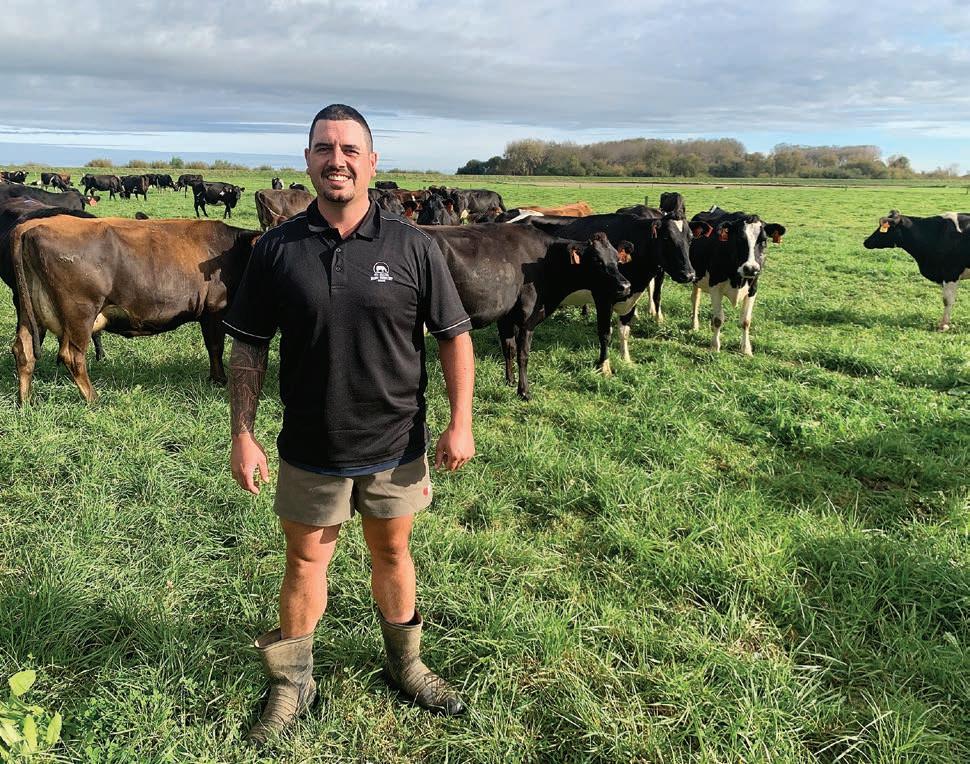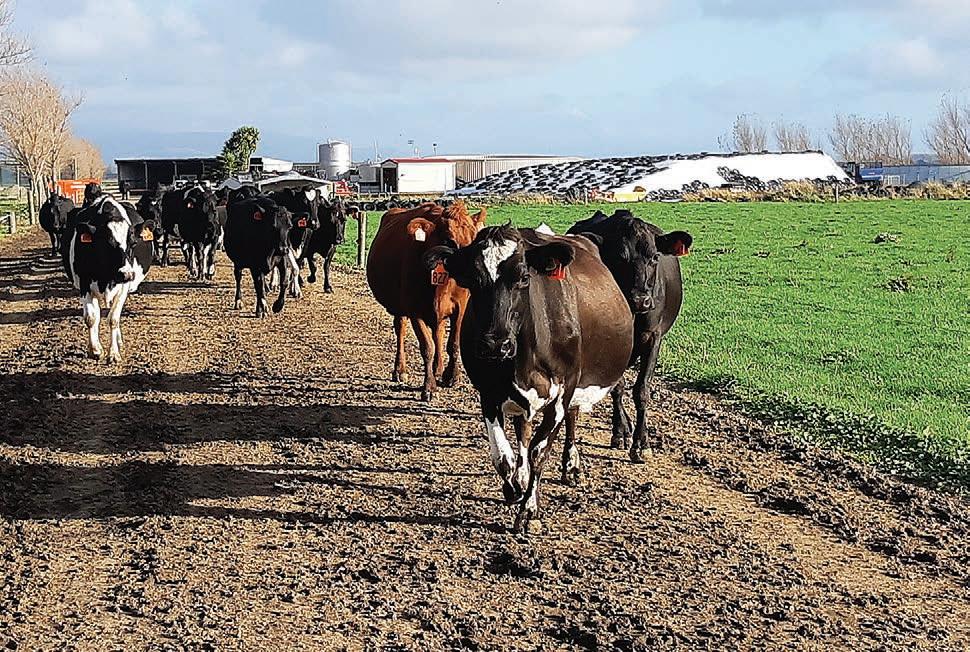
3 minute read
Second nature
by AgriHQ
By Samantha Tennent
Joel Peterson was born to make his living outdoors –and found a job with Pāmu that allows him to do so while giving back to the environment.
Twelve months in a dark stuffy building was enough for a Manawatū storeman who longed for the great outdoors and fresh air. Working in a warehouse was not spinning his wheels, so when he got wind of a farm assistant role on a local dairy farm through his wife Latoya, Joel Peterson thought it was worth a shot.
He jumped at the opportunity to take on a role that would see him working in the place he longed to be – outdoors. He is now the manager on Pāmu’s 510-cow Egmont Dairy Unit situated between Foxton and Shannon in the Moutoa area.
“It was the partner of a lady that Latoya worked with, he was dairy farming and needed a new team member,” Peterson says.
“It sparked my interest. I knew the lifestyle would be better for me and I wanted my kids to experience growing up in the country.”
The role was with Brad White, who was a low-order sharemilker in Tokomaru, near Palmerston North. Peterson left the warehouse and started on the farm after mating at the end of 2012.
“I highly recommend working for a low-order sharemilker running a lowintensive system when you’re first starting out,” Peterson says.
“There are plenty of opportunities to learn because they have a lot of time.
“Brad was really good and his dad owned the farm so I got to spend heaps of time with both of them.”
After two and a half years on that System 2 farm, he moved to a 450-cow farm in Shannon. This time he was 2IC and it was a shock to his system as it was operating a System 5 with a 40-bail rotary.
“It was a major eye-opener going to the total other end of the scale. I got chucked in the deep end and had no choice but to learn.”
During that season on the Shannon farm, Peterson entered the New Zealand Dairy Industry Awards and got third place in the trainee category for the Manawatū region. That exposure led to some job offers and one in particular tickled his fancy.

“It was with Pāmu and I was already intrigued by their system as I had been on their farms for discussion groups.
“They farmed at such a high level and with such a broad scope.”
So he moved into a 3IC role on an 850-cow farm, and the following season moved up to a 2IC role on another Pāmu farm, Egmont, milking 650 cows. Eighteen months later he became the manager of Egmont, which is now into its second year transitioning to organics.
It has been a journey with a lot of learning but Peterson says he has a solid team who had already been together for two years before the change so they were keen for the challenge to try something different.
“I enjoy hunting and the outdoors, so farming organically makes me feel like I’m doing my part to give back to the environment.
“And Pāmu is striving to reduce its environmental footprint, ensure good animal health and that we are farming sustainably, and organic farming aligns all of that for us.”
They had a six-month preparation period where they spent time sorting fencing and getting weeds under control. And in that time they started applying some organic principles to how they managed the herd, reducing antibiotic and synthetic fertiliser use.

Since switching to organic they have reduced their stocking rate from 3.2 to 2.7, dropping to 510 cows through the peak with the aim to become more selfsustainable and rely less on imported feed since organic feed can be difficult to source and expensive to buy. They are growing maize and turnips, and harvesting silage off the farm.
Peterson says the biggest part of the transition is the mindset shift.
“We’ve got to be so much more proactive to be ahead of what’s next.
“Cropping especially can be tricky but we just need to plan well because we don’t have the same tools available.”
He has three full-time staff members and a casual who does about 60 hours a fortnight, covering weekends and rostered days off.

“Pāmu is incredibly supportive of everyone maintaining a good work-life balance and they offer a lot of training and development to support their people.
“I did level 3 and 4 through Primary ITO early in my farming career and now we get a lot of consistent training internally, it’s great.”
He scratches his head to think what he would do if he was not on a farm but knows it would have to be something in the sector.
Looking back on his journey, he can see it took a good two to three seasons before he started truly appreciating and understanding the dairy sector, and he encourages others to have patience while they build their experience and knowledge.
“I reckon you don’t find your real enjoyment till your second or third year because you’re starting to know what to expect.
“The first season is hard, particularly because it starts at calving and it’s such an intense period through calving and mating.
“The majority of learning comes after that period in your first couple of years and I encourage others to stick it out and it will start getting easier.” n










